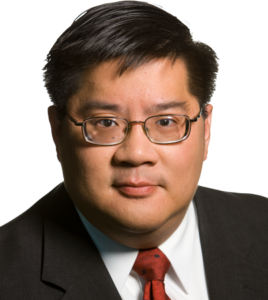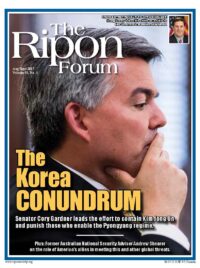
As Xi Jinping prepares for the 19th Party Congress this fall, he sees a China whose place in the world is both more prominent and powerful than it has been in a century, and yet also a China which faces growing challenges to its security.
On the one hand, the People’s Republic of China (PRC) is economically and militarily more capable than at any time since the end of the Qing Dynasty in 1911. China is the world’s second largest economy and the world’s largest trading power. It is the first or second largest trading partner of almost every country. It consumes enormous amounts of coal, oil, iron ore, bauxite, and in turn is one of the largest global producers of steel, ships and aluminum. China supplies the world with textiles, computers and consumer goods, and increasingly with direct financial investments.
As China becomes increasingly integrated in the global economic landscape, it is also increasingly vulnerable to international and transnational pressures and threats.
This economy, in turn, has sustained the development of one of the world’s most powerful militaries. Where once Manchu Bannermen faced Western ships and troops with spears and bugles, today’s Chinese People’s Liberation Army (PLA) is equipped with nuclear weapons, stealth fighters, and modern main battle tanks. The PLA Navy fields an aircraft carrier, nuclear and conventional powered submarines, and an array of modern surface combatants to defend China’s shores and maritime claims. Overhead, Chinese satellites maintain surveillance of the maritime approaches to China’s shores, and can guide ballistic missiles against American aircraft carriers.
This economic and military strength, in turn, expands Xi Jinping’s diplomatic clout. Chinese diplomatic acquiescence is necessary at the United Nations, if resolutions concerning Syria or North Korea or South Sudan are to be passed. Chinese-backed initiatives such as the “One Belt, One Road” effort and the Asia Infrastructure Investment Bank (AIIB) increasingly play a role in the international financial scene. As important, they are seen as challenging the post-World War II Bretton Woods economic structure, which was founded by the United States.
Alongside these advances, however, are growing challenges to Xi Jinping’s leadership. As China becomes increasingly integrated in the global economic landscape, it is also increasingly vulnerable to international and transnational pressures and threats caused by that same international presence. China is now the world’s largest importer of oil; its economy is affected by not only regional instability in the Middle East, but also by piracy on the high seas. As China has exported members of its workforce, who are employed in many of the overseas investments, they have increasingly become targets of terrorists and local unrest. Chinese citizens have been killed by ISIS terrorists. More than 20,000 Chinese workers had to be evacuated from Libya during the upheavals that ultimately toppled Mu’ammar Qaddafi.
Meanwhile, China faces increasing security challenges along its periphery. The festering problem of North Korea continues to destabilize the situation in Northeast Asia. North Korea’s missile and nuclear tests have persuaded South Korea to field the Terminal High Altitude Area Defense (THAAD) System, much to Beijing’s chagrin. Just as significantly, North Korean provocations have drawn the United States and South Korea closer. President Xi cannot be happy that Kim Jong Un’s actions have blunted the wedge that Beijing has sought to inject between Washington and Seoul.
The overwhelming electoral victories in 2016 of Tsai Ing-wen and her pro-independence Democratic Progressive Party (DPP) on Taiwan is another problem for Beijing. The issue of Taiwan was relatively muted for the past eight years, as Kuomintang (KMT) president Ma Ying-jeou avoided controversial stances. President Tsai has been careful to avoid deliberately antagonizing Beijing; nonetheless, Chinese leaders have demanded formal renunciation of the core platform of the DPP. Given DPP control of both the executive and legislative branch, President Tsai would probably lose power if she tried. Moreover, Beijing’s ham-handed policies towards Hong Kong mean that there is little confidence in Taipei that Beijing’s past policy of “one country, two systems” will be sustainable.
President Xi must balance maintaining good relations with the United States and not being seen as weak in defending Chinese interests.
These issues have gained saliency since Donald Trump won the 2016 election in the United States. Even before taking office, Mr. Trump challenged longstanding tenets of the U.S.-China relationship, by taking a call from Madame Tsai, and questioning American commitment to the “one-China policy.” Since then, President Trump has repeatedly called upon China to play a larger role reining in North Korea, pushed ahead with THAAD deployment in South Korea, and discussed the imposition of major tariffs on Chinese goods. At the same time, however, the Administration has not singled China out for currency manipulation, despite campaign slogans to that effect. For Chinese leaders, this is a bewildering policy approach that is neither typical of many newly elected administrations, which tend to be anti-China in the early years, nor focused on deal-making, as other analysts had predicted.
All this confronts Xi as he prepares for a major leadership evolution. Where previous Chinese leaders (Jiang Zemin, Hu Jintao) had Politburo Standing Committees (PSC) that typically maintained their membership throughout their two terms, most of the members of Xi’s PSC from 2012 will have to step down in 2017. While Xi himself will almost certainly remain in power through the 20th Party Congress of 2022 (as most likely will Premier Li Keqiang), he must name a new leadership cohort, which will significantly shape his legacy. The new leadership team that emerges this October, in turn, will have to navigate the shoals of a less vibrant economy, regional instability, and an unpredictable American president.
Even as he focuses on forging a new PSC, President Xi must therefore balance maintaining good relations with the United States and not being seen as weak in defending Chinese interests. He will have to reinvigorate China’s economy and coax greater growth, even as he must also not antagonize the United States and other major economies through openly mercantilist policies. For President Xi, these will be trying times.
Dean Cheng is Senior Research Fellow in the Asian Studies Center Davis Institute for National Security and Foreign Policy at The Heritage Foundation.




